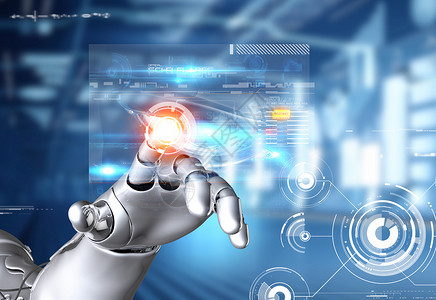
Artificial intelligence has become an indispensable part of our daily lives, completely changing various industries and improving people's convenience. From voice controlled television to language translation on mobile phones, the rapid development of artificial intelligence technology, and the prospects of the US economy and the S&P 500 index also depend on the competition between the productivity driven by artificial intelligence and the structural deficit deterioration driven by an aging society.
Firstly, the US budget deficit and interest expenses have skyrocketed. At the beginning of 2024, the market predicted that the Federal Reserve would cut interest rates six to seven times this year, making the severe budget outlook unattainable. Long term high interest rates are accelerating the fiscal alarm. The harsh reality test may arrive within 12 to 18 months.
As economic growth slows down, there may be a certain degree of interest rate reduction. However, the US economy did not stagnate as a result. At the same time, the United States is heading towards a huge fiscal cliff. In addition to the reduction and exemption of corporate income tax, the tax reduction measures passed in 2017 will expire by the end of 2025. Congress must take action next year to avoid significant tax increases. Extending these regulations will expand the budget deficit to 1.3% of GDP, not including increased debt repayment. Analysis shows that immediate spending cuts of $1 trillion and tax increases are needed to stabilize debt at around 100% of GDP. If interest rates remain high and tax cuts are extended, the average deficit in the next decade may reach 8% of GDP.
Secondly, in the short term, the inflation rate will rebound to 2%, and the US economy will enter the second tier, which may keep the S&P 500 bull market intact, although the foundation is not solid. The nominal GDP growth rate may slow down to around 4% per year, while the budget deficit will rise to 8%.
However, the prosperity of artificial intelligence productivity may become an antidote to the current trajectory. In the future, there will be a shortage of employment opportunities due to artificial intelligence, and the economic growth rate will be improved by eliminating the constraints of the labor market. Faster growth generates more income, thereby narrowing the fiscal deficit.
In addition, the GDP growth rate should be maintained at a level higher than the government borrowing rate. Therefore, the federal debt will not expand relative to the size of the US economy, and the likelihood of achieving this scenario is 45% to 55%. This means that the US economy will grow by about 3% or even higher between 2028 and 2040, as the artificial intelligence boom will bring productivity improvements, which are equivalent to nearly one percentage point of GDP growth driven by electrification from 1910 to 1929. If artificial intelligence increases annual productivity by 0.3% to 0.4%, the estimated probability of such a situation occurring is 30% to 40%. This will be consistent with the productivity gains achieved through personal computers and the Internet from 1970 to 2006. The real GDP growth rate will decrease to 1.5% or lower, even lower than the real interest rate of government debt. This means that the debt stock will increase relative to the size of the US economy.
Although the prosperity of artificial intelligence is more likely to significantly increase productivity. The probability of productivity growth exceeding 2.5% per year in the next decade is 60%, higher than the sluggish growth rate of 1.5% since 2005. Strong growth, low inflation and high profits will push the S&P 500 index to 8000 points by 2030. However, the biggest risk is that the surge of AI stocks may be out of control. The Federal Reserve's interest rate cut will lead to market collapse, and the surge of asset prices may lead to inflation, leading to another interest rate increase, and eventually leading to the bursting of the valuation foam.
Overall, generative artificial intelligence can replace up to a quarter of current work, and AI productivity will be brought to the public in an easy to understand and intuitive way. The rise of artificial intelligence has increased bullish expectations for large technology companies. Artificial intelligence seems to become a transformation tool for enterprises and generate considerable economic profits.

報告顯示,中國電力投資加速增長,預計2024年電網基建投資將超過5300億元。
近日,市場迎來了一則引人注目的消息:工業巨頭3M公司(MMM.N)在本周五公布了其季度業績報告,隨後股價飆升至近兩年來的
最近,外媒給OpenAI算了筆賬,今年可能要血虧50億美元。
近日,巴黎奧運會和世界鐵人三項協會聯合發布了一項重大決定,宣布因塞納河水質污染問題,原定於近期進行的奧運會鐵人三項首次下
當地時間7月18日,法國巴黎發生了一起令人震驚的持刀襲警事件。
近期,一則重大消息在國際舞臺上引起軒然大波,馬來西亞宣布加入金磚國家。
調查發現,互聯網和智能手機的使用幹擾了韓國近五分之一學生的生活。